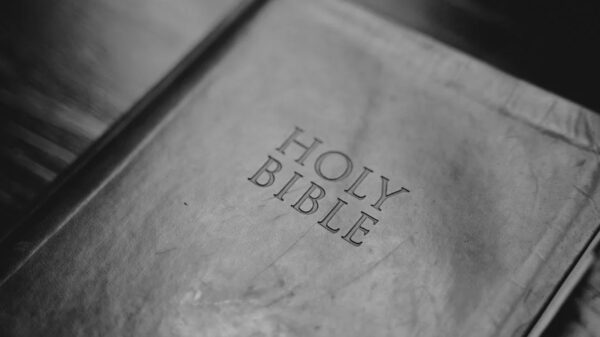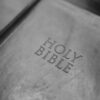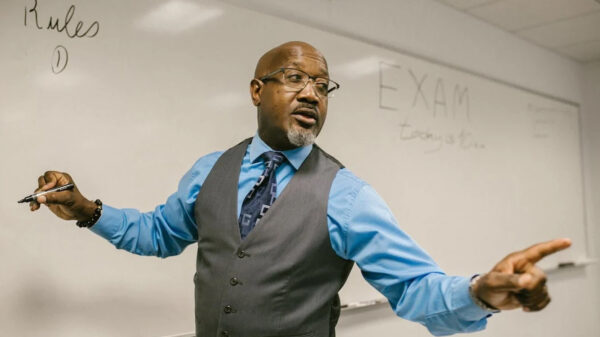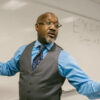
Bugliosi seems to argue that the gospels, since they fail to meet the standard for criminal cases, shouldn’t be considered for their evidential value when examining the Christian claims related to the First Century. But there are several reasons why this courtroom standard is clearly unreasonable when applied to historical records. We have a much higher standard in criminal courts than we ought to require for historical accounts. As a culture, we would prefer to allow one hundred guilty people get away with a crime than falsely convict one innocent person. We lean in this direction for a reason; we want to protect the rights of our citizens at all costs. But the standard that protects citizens would also eliminate everything we know about history if it was applied to the records we have from antiquity.
In fact, if we required a living, “cross-examinable” eyewitness before being willing to accept a claim about the past, we would have to reject every claim of history! Why should we trust the ancient claims of Herodotus, Thucydides, Ptolemy or Julius Caesar? Why should we trust more recent historical records like those of Corrie Ten Boom? For that matter, why should we even trust what we know about our own personal family history? Much of what we know was passed down from people who are no longer available for cross-examination! The courtroom standard, designed to favor defendants exceedingly, is far too high a standard for historical accounts. This standard would make it impossible to trust anything we know about history.
Vincent Bugliosi was also involved in an important historical event; he was the prosecutor in the Charles Manson murder trial in 1970. Manson led a group of followers who committed several horrific murders in the late 1960’s. Bugliosi tried the case and relied heavily on an eyewitness named Linda Kasabian. Kasabian was part of Manson’s sect of followers but did not participate in the murders directly. Her testimony was critical to the trial. But let’s fast-forward to 2070, one hundred years after the trial. Why should we trust anything that Kasabian had to say about Manson? Why should we trust that the 100 year old court record is accurate? How can we be sure that someone didn’t alter the record of the trial? How can we be sure that the proper questions were asked during cross-examination or that some critical detail wasn’t missed? No one from the original events (or the trial that followed them) would be alive to tell us anything; no one would be available for cross-examination.
If, in the year 2070, Bugliosi applied the same high standard he requires of the gospel accounts to the records of his own famous trial, he would be hard-pressed to trust the truth of his own personal history. If we are prepared to reject any claim about the past for which we don’t have a living “cross-examinable” eyewitness, we had better be ready to jettison all of history, including all the history surrounding the Manson case. The criminal standard here is excessively high. While it might aggressively protect the rights of a defendant, it would unnecessarily disqualify accurate accounts from the past. We simply must do our best to establish the reliability of historical eyewitness accounts, without rejecting them out of hand once the original eyewitnesses are no longer available to us. There is much we can learn about eyewitness reliability from the courtroom (I’ve tried to discuss this process in my book). If we can establish the reliability of the gospel writers, we can trust what they have to say about Jesus, even though they are no longer available for cross-examination. If we can establish the reliability of the gospel writers, we can trust what they have to say about Jesus, even though they are no longer available for cross-examination. Share on X

J. Warner Wallace is a Dateline featured Cold-Case Detective, Senior Fellow at the Colson Center for Christian Worldview, Adj. Professor of Christian Apologetics at Talbot School of Theology, Biola University, author of Cold-Case Christianity, God’s Crime Scene, and Forensic Faith, and creator of the Case Makers Academy for kids.
Subscribe to J. Warner’s Daily Email
J. Warner Wallace is a Dateline featured cold-case homicide detective, popular national speaker and best-selling author. He continues to consult on cold-case investigations while serving as a Senior Fellow at the Colson Center for Christian Worldview. He is also an Adj. Professor of Christian Apologetics at Talbot School of Theology, Biola University, and a faculty member at Summit Ministries. He holds a BA in Design (from CSULB), an MA in Architecture (from UCLA), and an MA in Theological Studies (from Gateway Seminary).







































Pingback: Links & Quotes | Craig T. Owens
Pingback: Can A Witness Be Trusted If He Can’t Be Cross-Examined? | Cold Case Christianity – Reformed faith salsa style
Pingback: mid-week apologetics booster (7-16-2020) – 1 Peter 4:12-16